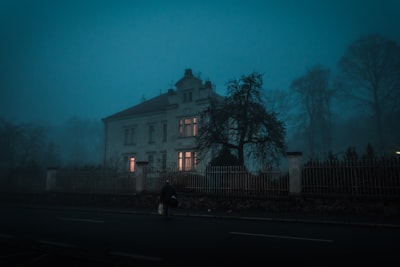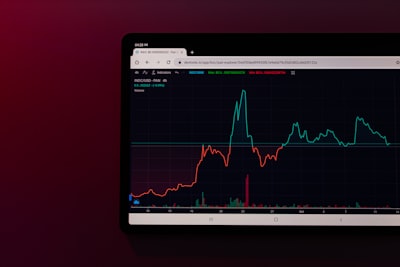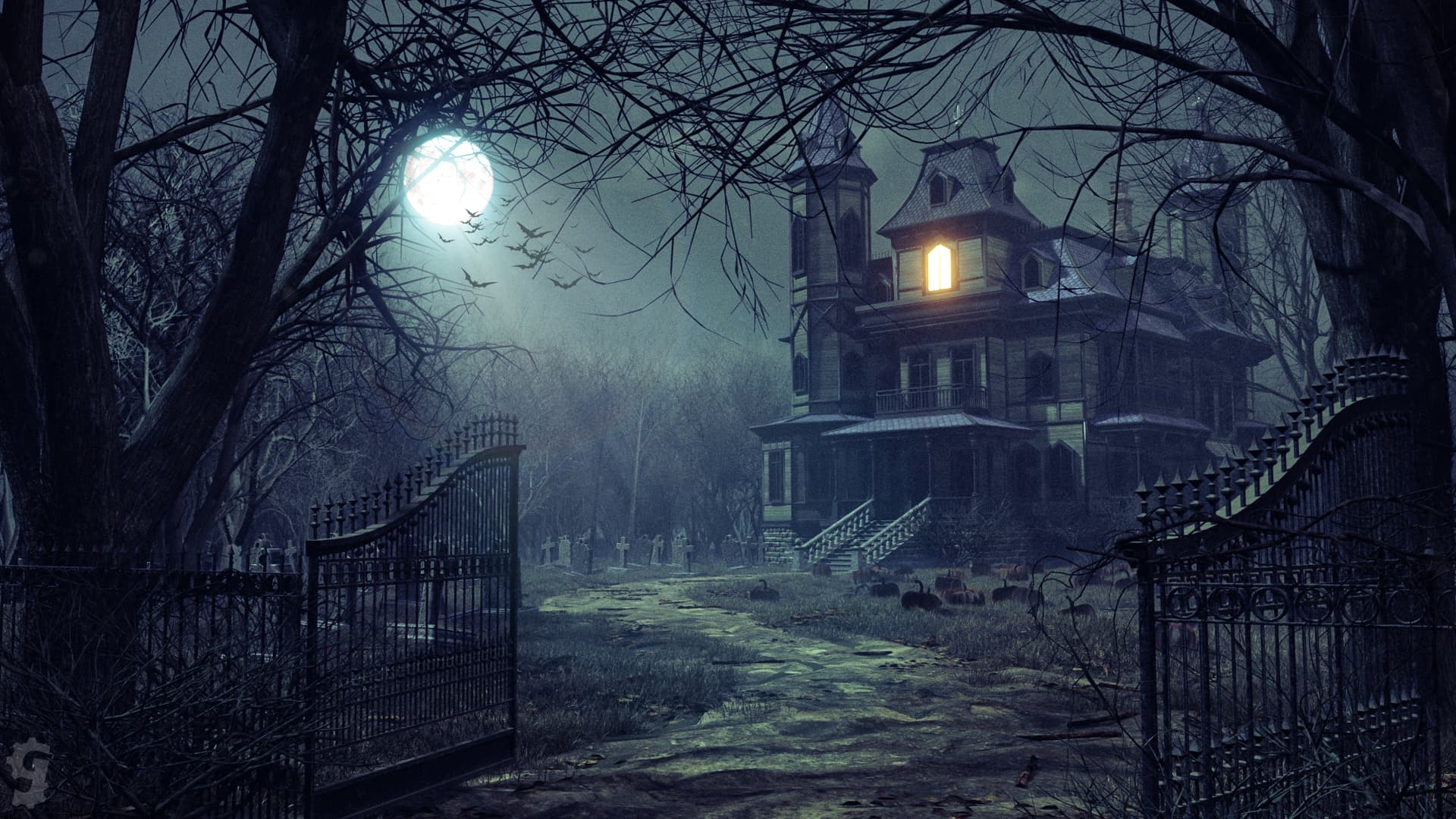Key Highlights
- Selling a haunted house involves understanding unique disclosure laws, which vary by state.
- A property’s reputation can create a psychological impact on prospective buyers, classifying it as a stigmatized property.
- New York is the only state that requires some form of disclosure about a home being publicly known as haunted.
- Working with a real estate agent who is experienced with stigmatized properties can be beneficial.
- Your disclosure responsibilities can change if a buyer asks directly about paranormal activity.
- Marketing a haunted house can either embrace the spooky reputation or focus on the home's physical attributes.
Introduction
Selling your home can be a complex process, but what if your property has a few extra... occupants? For homeowners with a haunted house, the usual rules of real estate can feel a bit like they've been turned upside down. It’s not just about curb appeal and square footage when you have bumps in the night that aren't from old pipes. This guide is for you, the homeowners of a potentially haunted house, to help you navigate the sale, from legal disclosures to marketing, no matter the season—not just on Halloween.
Understanding Haunted House Disclosure Laws in the United States
When it comes to selling a stigmatized property, the legal landscape can be murky. Real estate disclosure laws are not uniform across the country, and what you must tell a buyer in one state might not be required in another. Generally, a "buyer beware" approach applies to paranormal activity, but there are important exceptions, especially if you have publicly advertised your home as haunted.
Failing to provide the proper disclosure could affect the sale or even lead to legal challenges. For instance, a famous New York court case in 1991 allowed a buyer to back out of a contract because the seller had not disclosed the home's public reputation for being haunted [1]. It is always wise to seek legal advice to understand your specific obligations. Let's look at which states have specific rules and what defines a stigmatized property.
Which States Require Sellers to Disclose Paranormal Activity?
If you are looking for a clear-cut national rule on disclosing ghosts, you will not find one in your search results. Only New York has a law that directly addresses a home’s reputation for being haunted. In what is now famously known as the "Ghostbusters ruling," the court decided if a seller has promoted their house as haunted to the public, they must disclose this reputation to potential buyers.
Other states have different disclosure requirements that may indirectly relate to a property's spooky history. For example, some states require sellers to disclose deaths that occurred on the property. Researching laws on Google for your specific location or consulting with a legal professional is the best way to ensure you are compliant.
Haunted or Unusual Property Disclosure Laws by State:
- New York
- Sellers must disclose if they have publicly marketed the house as haunted.
- California
- Requires disclosure of any death on the property within the last three years.
- Alaska
- Requires disclosure of a murder or suicide on the property within the past year.
- South Dakota
- Requires disclosure of a homicide or suicide on the property within the past year.
- New Jersey
- No requirement to disclose paranormal activity, but sellers must be truthful if asked directly.
What Qualifies as a Stigmatized Property and Seller Responsibilities?
A stigmatized property is a home that buyers may find undesirable due to its history rather than its physical condition. This stigma is often emotional or psychological and can stem from various events that have occurred there. While a poltergeist might be the cause, other events can also create this reputation. The key factor is the psychological impact on buyers, which can make the property harder to sell.
This stigma isn't just about hauntings. A property's reputation can be affected by a range of past events. For instance, if a serious crime took place in the home, it could be considered stigmatized. You can find scholarly literature that discusses the legal implications of such properties.
Events that can stigmatize a property include:
- A homicide, suicide, or other violent crime
- Previous use as a site for drug dealing or gang activity
- The property being known as haunted publicly
- A natural death occurring in the home (in some states)
Steps to Prepare Your Haunted House for Sale
Preparing a haunted house for the market involves more than just a fresh coat of paint. As homeowners, you need to address both the physical state of the property and its reputation. This means making sure the house is in excellent condition to help prospective buyers look past any spooky stories. A thorough Google search or review of technical reports from a home inspector can help identify any physical issues, like old pipes, that might be mistaken for paranormal activity.
Your preparation strategy will depend on whether you plan to disclose the haunting or are required to by law. Making the home feel bright, clean, and welcoming can help counteract any unease. The following sections will offer tips on making the property more appealing and working with the right professionals.
How to Make a Haunted Property Appealing to Buyers

Making a haunted house appealing to prospective buyers is about managing perceptions and highlighting the positive. Your goal is to reduce the psychological impact of the home's reputation by focusing on its tangible benefits. A bright, clean, and well-maintained home will always have more appeal, regardless of its history.
Think about what makes your property great besides its otherworldly residents. Does it have a beautiful garden, a newly renovated kitchen, or a great location? Emphasize these features in your listing and during showings. The more you can ground a buyer's experience in the physical reality of the home, the less power its spooky reputation will hold.
Here are a few ways to boost your haunted house's appeal:
- Deep Clean and Declutter: Create a bright, open, and welcoming atmosphere.
- Make Repairs: Fix any issues, especially things like creaky floors or drafty windows that could be misinterpreted.
- Stage the Home: Professional staging can help buyers visualize themselves living in the space peacefully [2].
- Highlight the Positives: Focus marketing materials on the home's best features, such as its architecture, location, or recent upgrades.
Working with Real Estate Agents Experienced in Haunted Homes
Selling a haunted house is a unique challenge, so it makes sense to work with a real estate agent who has experience with stigmatized properties. An agent who understands the nuances of selling homes with a reputation can guide you through the process, from pricing to marketing. They can help you navigate disclosure laws and determine the best way to present your home to the market.
When interviewing a real estate agent, ask about their experience with similar sales. Have they ever sold a home where a death occurred or one with a public reputation? Their answers will reveal their comfort level and expertise. An experienced agent can help you correctly assess the market value, which might be lower due to the stigma, and develop a strategy to attract the right kind of buyer.
These agents often have a network of contacts and marketing strategies tailored to unique properties. They know how to field difficult questions from buyers and their agents, protecting you from potential legal issues while working to get the best possible price for your home.
Marketing Strategies for Selling a Haunted House
Your marketing strategies for a haunted house will go in one of two directions: you can either lean into the spooky reputation or downplay it entirely. The right choice depends on your local market, your disclosure requirements, and the specific history of your home. A quick Google search of your address or a look on Google Maps might reveal just how public the stories about your house are.
If the haunting is mild or not widely known, focusing on traditional marketing that highlights the property's features is often the best approach. However, if your house is famous for its ghostly residents, embracing the theme could attract a niche group of prospective buyers. Let's explore how to attract the right buyers and the pros and cons of advertising your home as haunted.
Effective Ways to Attract the Right Buyers
Attracting the right prospective buyers for a haunted house requires a targeted approach. If you decide to embrace the home's reputation, your ideal buyer might not be the typical family. Instead, you could market to paranormal enthusiasts, history buffs, or even investors looking for a unique property to turn into a themed rental or attraction. Finding these buyers may require more creative marketing strategies than just a standard listing.
You can use online forums, social media groups dedicated to the paranormal, or publications that cater to this audience. High-quality photos and a compelling story can capture the imagination of this niche market. Alternatively, if you are downplaying the stigma, your marketing should focus entirely on the home’s physical attributes, aiming for traditional buyers who value location, size, and amenities.
Here are some effective marketing strategies:
- Target Niche Audiences: Market to paranormal investigation groups or history societies.
- Honest and Upfront Marketing: If you're advertising it as haunted, be clear and direct to attract serious buyers.
- Focus on Features: If not, emphasize tangible assets like a modern kitchen, large yard, or great school district.
- Professional Photography: Use high-quality, bright photos to make the home look as appealing as possible [3].
Pros and Cons of Advertising a Home as Haunted
Deciding to advertise your home as a genuine haunted house is a major decision with significant pros and cons. On one hand, it can be a powerful marketing hook that makes your property stand out in a crowded market. It can generate media attention and attract a specific type of buyer who is excited by the prospect of living with spirits. This can sometimes lead to a quicker sale if you connect with the right person.
However, the cons are substantial. Advertising a home as haunted will immediately alienate a large portion of the buying public, potentially leading to a lower market value. The psychological impact of the stigma can be difficult to overcome. It may also attract curiosity seekers who have no intention of actually making a purchase, wasting your time and effort.
Consider these points carefully:
- Pro: Attracts a dedicated niche market.
- Pro: Creates media buzz and free publicity.
- Con: Significantly shrinks your pool of potential buyers.
- Con: Can lower the property's market value.
- Con: Attracts non-serious visitors and ghost hunters.
Frequently Asked Questions (FAQ)
Curiosity often surrounds the idea of selling a haunted house, leading to many common inquiries. Prospective buyers might wonder about the legal obligations surrounding stigmatized property, particularly in states like California or New Jersey where real estate disclosure laws come into play. Residents of South Carolina and New Hampshire may also question how to disclose natural deaths or homicides. Engaging a knowledgeable real estate agent can help navigate these complex questions, addressing the psychological impact on homeowners and buyers alike.
Can selling a haunted house impact its market value?

Yes, selling a haunted house can definitely impact its market value. The stigma associated with a property's paranormal reputation can create a negative psychological impact on prospective buyers. This often leads to a smaller buyer pool and can drive down the property's value, sometimes by a significant amount.
What should I do if a buyer asks directly about paranormal activity?
If a buyer asks directly about paranormal activity, honesty is the best policy, especially since some states legally require you to answer truthfully if asked. Consult with your real estate agent or seek legal advice to formulate an honest and legally sound response. Failing to disclose could lead to problems later.
Have sellers ever faced legal action for not disclosing a home is haunted?
Yes, sellers have faced legal action. The most famous lawsuit is Stambovsky v. Ackley in New York, where a buyer successfully backed out of a contract because the seller didn't disclose the home's public reputation for being haunted. While rare, a lawsuit is possible, highlighting the importance of understanding disclosure laws.
Conclusion
Selling a haunted house may seem daunting, but with the right approach and knowledge, it can be an exciting endeavor. By understanding disclosure laws, preparing your property effectively, and employing targeted marketing strategies, you can attract the right buyers who share your enthusiasm for the paranormal. Remember, transparency about the unique aspects of your home not only builds trust but also helps to set realistic expectations. As you embark on this journey, don't hesitate to leverage resources and expertise to guide you through the process. If you have any questions or need further assistance, feel free to reach out for a personalized consultation to help you successfully sell your haunted abode!





